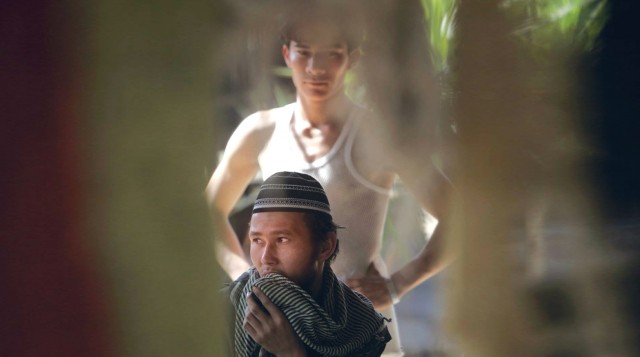
The letters came in Darri, Pashto and Turkish and demand extortion money. “The idea is to capture the people who threaten shopkeepers and hand them over to the police,” said Haji Abdullah, who headed a jirga this week to tackle the matter. The Afghan elders unanimously decided to inform the police and put volunteers on duty at the market, especially at night. Around 15 youngsters have been chosen to protect the shops for now.
The police were told about the threats but did not do anything despite six requests, said Haji Abdullah, adding that they promised protection but nothing happened.
Haji Qadir is one of the traders who received a threatening letter in Darri. “Pay Rs300,000 or prepare a coffin for yourself,” it said. The letters are unsigned but a mobile phone number is given. According to the procedure, the shopkeeper has to call the mobile phone number. The person who answers gives him instructions to take the money to a spot. Either they leave the money there or someone comes to take it from them.
In December 2009, two Afghan brothers were killed for failing to pay extortion money on time, said Haji Qadir. “We have no other option but to pay,” he said.
Even those traders who have shops in Sohrab Goth are paying extortion money ranging from Rs30,000 to Rs150,000 every four months.
The Sohrab Goth police claimed that they did not receive any complaints from the Afghan Mohajir camp. The police argued that they would have taken action had they received any information regarding such activities.
The Afghan camp was initially set up in the 1980s to accomodate Afghans fleeing the fighting across the border.
At the last count, in 2006, the UNHCR put the number of registered Afghan refugees in Karachi at 92,000. But the Afghans from this area say that there are over 85,000 people living in their settlement alone.
As their repatriation has hung in the balance for years, plagued by bureacratic glitches, at least two generations of children have been born in Karachi and call it home.
They and their families lead full lives here and many of them have never been to Afghanistan.
These Afghans may no longer be ‘refguees’ but many other groups in Karachi, which is a city of 20 million people divided on ethnic and political lines, argue that they should return ‘home’. The police is not always sympathetic to them either.
To make matters worse, these Afghan elders suspect the involvement of people from their own community who have fallen in with criminal networks.
“Of course insiders are also involved because the letters are delivered in Darri, Tajik or Pashto languages,” said Haji Sohrab, a businessman, who represented his tribe at the jirga. “But, the gansters are supporting them.”
Published in The Express Tribune, July 15th, 2010.

















COMMENTS (6)
Comments are moderated and generally will be posted if they are on-topic and not abusive.
For more information, please see our Comments FAQ